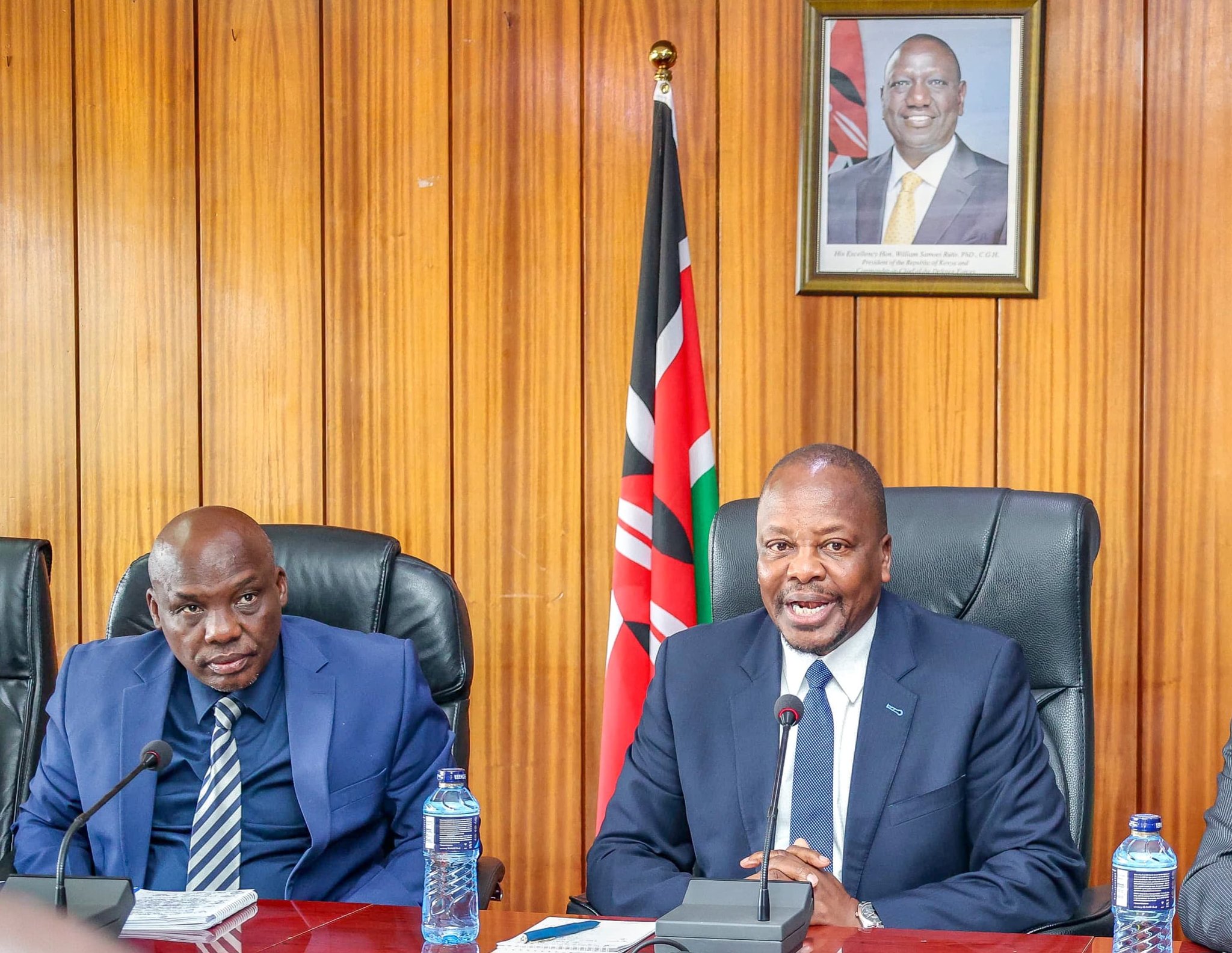

The suspension of certification and audit processes for tea factories by Rainforest Alliance will remain in force pending a detailed review of its relevance, benefits, and sustainability.
According to the industry stakeholders, the suspension order by the government will continue until a report justifying its benefits to the farmers is presented to Ministry of Agriculture.
The resolution was reached today during a consultative meeting chaired by Agriculture Principal Secretary Paul Ronoh Principal Secretary alongside Cabinet Secretary Mutahi Kagwe.
The meeting included leadership from the Rainforest Alliance, the Tea Board of Kenya (TBK), the East African Tea Trade Association (EATTA), private tea producers, and other key sector representatives.
Stakeholders expressed that the certification, implemented in 2006, has become economically unsustainable.
They cited particularly low impact in key export markets such as the United Kingdom, which accounts for only 8 per cent of Kenya’s tea exports, despite the high costs of compliance being borne by factories and ultimately passed on to farmers.
“After thorough deliberations, it was resolved that the certification will remain suspended until a technical team submits a detailed report outlining its actual benefits and a sustainable implementation framework,” Ronoh said.
The government suspended the Rainforest Alliance certification and audit processes last month, citing disproportionate costs with minimal demonstrated value.
In a circular issued by PS Ronoh, the Ministry raised concerns that the certification scheme unfairly burdens producers, rather than end consumers who demand certified products.
“This burden should rightly be borne by the end consumer, who demands certified products, rather than by the grower,” said Ronoh.
The suspension follows a May 8, 2025 meeting involving TBK, KTDA, and Rainforest Alliance regional management, which concluded that the current model of certification offers limited economic justification.
Effective immediately, all tea factories have been instructed to halt any ongoing or upcoming audits and certifications under the Rainforest Alliance standard, with the suspension remaining in force pending a joint resolution.
The directive has been circulated to the CEOs of KTDA, TBK, the Kenya Tea Growers Association (KTGA), the Independent Tea Producers Association of Kenya (ITPAK), and KTDA Management Services.
This step is consistent with broader government's efforts to ease the cost of doing business in the tea industry and to protect the livelihoods of smallholder farmers affected by high production expenses and reduced earnings.
Ronoh reaffirmed the government’s its commitment to farmers and sustainable practices,resolving that the suspension remains until a technical team assesses its value and feasibility.
Rainforest Alliance is a global non-profit organisation that works to promote sustainable agriculture, forestry, and responsible business practices.
It provides certification to farms and companies that meet its environmental, social, and economic sustainability standards.
The certification has been used to assure international buyers that tea is produced using environmentally and socially responsible practices.
However, concerns have been raised about the high cost of compliance for producers, especially smallholder farmers.
The certification typically involves promoting environmentally responsible farming practices, ensuring fair treatment and good working conditions for workers, conserving biodiversity and natural resources and improving the livelihoods of farmers and local communities.
Certified farms and factories can use the Rainforest Alliance seal on their products, which often gives them better access to premium markets and sustainability-conscious consumers.
The operations of the organisation spans over 70 countries globally.

















